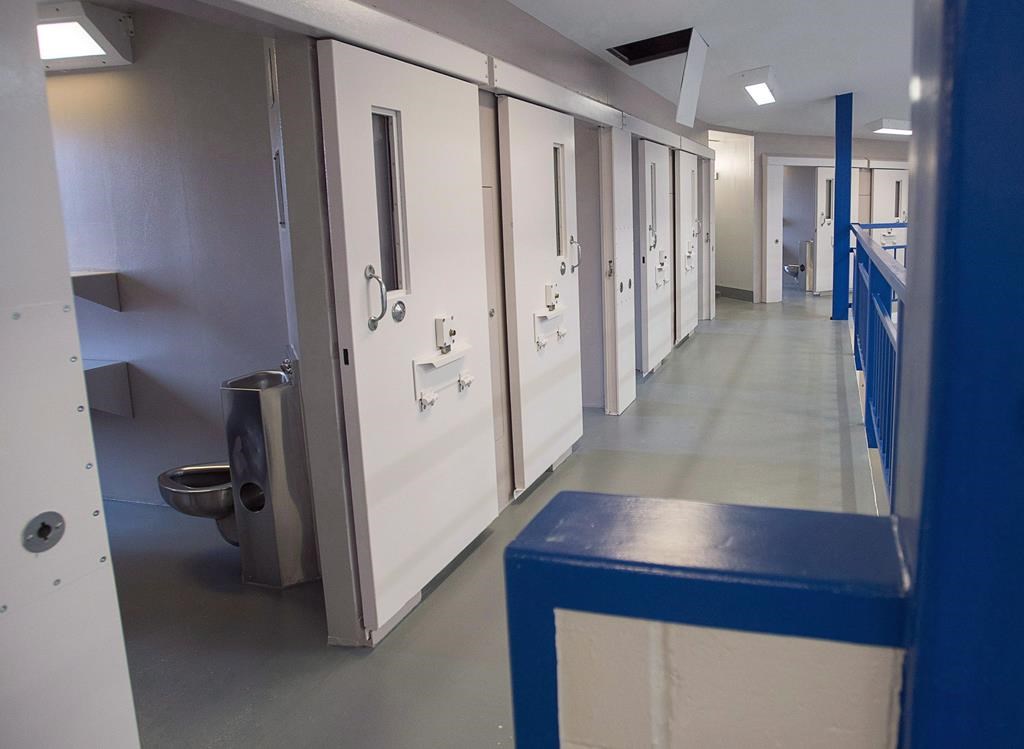Inmates at a Halifax-area jail say their rights have been violated by months-long rolling lockdowns, as correctional officers refuse work because of dangerous conditions in the provincial detention centre.

A series of complaints recently brought before the Nova Scotia Supreme Court tell a similar story: inmates locked in their cells for extended periods, sometimes 23 hours a day, because of staff shortages at the Central Nova Scotia Correctional Facility.
The details are included in complaints known as habeas corpus applications, in which a judge assesses the conditions of a person’s confinement. The purpose is to determine whether a detainee’s Charter rights have been violated and they should be granted a remedy, such as more time out of their cell.
At least eight complaints have been made since April, offering a rare glimpse into the violent, isolating conditions in the 370-bed Halifax-area facility, also known as the Burnside jail.
Mark Keenan’s habeas corpus application said he was regularly locked in his cell at the jail for more than 22 hours a day.
Justice Joshua Arnold concluded in a June 19 ruling that Keenan had been locked in his cell once for 31 hours straight, adding that the inmate was rarely let out for 12 hours a day, which is the “unwritten target” at the jail. Arnold acknowledged the “havoc” the lockdowns have caused in the jail’s daily schedule.
“Calls to lawyers have been impacted,” he wrote. “Visitation has been impacted. Meals have been impacted. Tensions are high.”
Inmate-on-inmate intimidation and violence, as well as inmate attacks on staff, “leads to more lockdowns and more staffing shortages,” the judge wrote.
Keenan’s application said the jail’s entire population suffers under the lockdowns, but he claimed the facility’s most intimidating inmates bully their way into receiving more time out of their cells than others.

Hanna Garson, a lawyer with prisoner advocacy group PATH, said she wonders what it’s going to take for the system to change.
“How bad does it have to get for the courts to order relief?” she said in a recent interview.
A habeas corpus application is one of the few avenues inmates have if they feel their rights are violated, she said.
“If individuals’ mental health and human rights are being abused, and they’re using the proper avenue, and the only avenue to get in front of the courts, it is now the court’s role to address the situation,” she said.
But the courts have consistently ruled that lockdowns triggered by a lack of staff cannot be addressed via habeas corpus, even if some judges acknowledge they arrived at the conclusion reluctantly.
“I simply cannot provide a remedy to Mr. Keenan under the writ of habeas corpus,” Arnold wrote. “Mark Keenan’s habeas corpus application is (reluctantly) denied.”
In her June 26 decision for Thomas Downey’s application, Justice Christa Brothers said the court has no power to order the government to hire and retain more staff.
But, she said, “if creative and effective measures to hire and retain staff are not pursued, there may come a day when, in a suitable procedural context, the court can provide some form of remedy.”
Downey’s application detailed his struggles with physical and mental health. He said that because of the lockdowns, he can’t exercise, shower, contact a doctor, or speak with his lawyer or family.
“I have six kids,” he testified, “I cannot talk to my kids if I’m not getting out.”
Downey’s application also revealed instances of “prolonged security breaches” in the jail’s general population unit earlier this year.
During a hearing for Downey’s complaint, Brad Ross, deputy superintendent of the Burnside jail, said in March and April there were two cases of a “unit-wide refusal” to listen to orders from corrections officers, along with “multiple assaults being perpetrated by the inmates, against other inmates,” with some hospitalized for their injuries.
Ross said there are “multiple incidents” throughout the year, including assaults of inmates and staff and property damage.
“We have to have enough staff to respond to that kind of thing,” he said, “and we definitely have to have enough staff to respond to any type of assaults, especially on staff or inmate on inmate.”
Sandra Mullen, president of the Nova Scotia Government and General Employees Union, which represents correctional officers, described the situation as a “vicious turnstile.”
“A new staffer might come in, see the conditions in the Burnside facility, and decide not to stay,” she said, adding a tight labour market means workers are “in the driver’s seat” and have options to work in many sectors.

The province, she added, might have to look at the wages offered to correctional workers in order to entice new staff and retain the current workers. “I think there’s some hard work to do behind the scenes,” she said.
During Keenan’s hearing, John Landry, assistant deputy superintendent of the jail, testified that 10 staff members had been assaulted over the course of one week amid dangerously low staffing levels. He said more than a dozen staffers had recently refused work under the Occupational Health and Safety Act due to security concerns.
Nova Scotia’s Justice Department says the rotational lockdowns are necessary to ensure the safety and security of inmates and staff.
Department spokesperson Andrew Preeper said correctional services, “like other employers,” are facing staffing challenges.
“While recruitment is an ongoing process, we are working on other workforce initiatives to help improve staffing in our correctional facilities,” he said in an email.
This report by The Canadian Press was first published July 20, 2023.



Comments